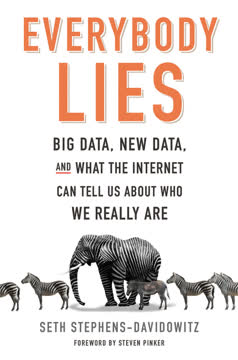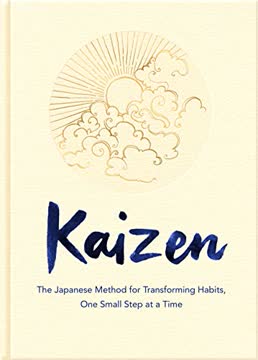つの重要なポイント
1. イノベーションはAppleの成功の生命線
イノベーションは、どれだけのR&D資金を持っているかとは関係ない。AppleがMacを開発したとき、IBMは少なくとも100倍のR&D費用をかけていた。重要なのはお金ではなく、どんな人材を持っているか、どのようにリードされているか、そしてどれだけ理解しているかだ。
人材主導のイノベーション。 Appleでは、イノベーションは革新的な製品を作り出すことに情熱を持つ才能ある個人から生まれる。会社は創造性が育つ環境を提供し、従業員が常識にとらわれずに考え、挑戦することを奨励している。このアプローチにより、Macintosh、iPod、iPhone、iPadといった画期的な製品が生まれた。
イノベーションの文化。 Appleの成功は、消費者が気づいていなかった問題を特定し解決する能力に根ざしている。ユーザーエクスペリエンスとシンプルさに焦点を当てることで、Appleは常に業界を革新する製品を生み出してきた。イノベーションへのコミットメントは技術だけでなく、デザイン、マーケティング、リテール戦略にも及んでいる。
主要なイノベーション:
- パーソナルコンピュータのグラフィカルユーザーインターフェース(GUI)
- iPodのクリックホイール
- iPhoneとiPadのマルチタッチインターフェース
- App Storeエコシステム
- ハードウェアとソフトウェアの統合アプローチ
2. シンプルさとユーザーエクスペリエンスが製品デザインを駆動する
私たちは、顧客は賢く、よく考え抜かれた物を求めていると信じている。
デザイン哲学。 Appleの製品デザインのアプローチは、直感的でユーザーフレンドリーなデバイスを作り出し、人々の生活にシームレスに統合することに焦点を当てている。会社は複雑さを排除し、必要な機能に集中することで、美しく機能的な製品を生み出している。
ユーザー中心のアプローチ。 ユーザーエクスペリエンスを最優先することで、Appleは製品のあらゆる側面に細部へのこだわりを評価する忠実な顧客基盤を築いてきた。このシンプルさへの焦点は、ハードウェアだけでなくソフトウェアやサービスにも及び、全体的なユーザーエクスペリエンスを向上させている。
主要なデザイン原則:
- 直感的なインターフェース
- ミニマリスト美学
- 細部へのこだわり
- ハードウェアとソフトウェアのシームレスな統合
- 必要な機能に焦点を当てる
3. 情熱と忍耐力が起業の成功に不可欠
人々は、やっていることに多くの情熱を持たなければならないと言うが、それは完全に真実だ。なぜなら、それが非常に困難だからだ。情熱がなければ、理性的な人なら誰でも諦めてしまうだろう。
推進力。 情熱は、起業家が直面する避けられない挑戦や挫折を乗り越えるための燃料である。ジョブズは、やっていることに深い愛情がなければ、成功した会社を築くための困難な時期を乗り越えることはほぼ不可能だと強調している。
長期的なコミットメント。 起業の成功には、しばしば何年もの献身と努力が必要である。ジョブズ自身のAppleでの旅、特に彼の退社と最終的な復帰は、逆境に直面してもビジョンにコミットし続けることの重要性を示している。
起業の成功に必要な属性:
- 仕事に対する揺るぎない情熱
- 挑戦に対するレジリエンス
- リスクを取る意欲
- 他人を鼓舞しリードする能力
- 継続的な学習と適応
4. お金を稼ぐことではなく、素晴らしい製品を作ることに集中する
墓地で一番金持ちの男になることは私にとって重要ではない。… 夜寝る前に、素晴らしいことを成し遂げたと言えること、それが私にとって重要だ。
製品第一のメンタリティ。 ジョブズは常に短期的な財務利益よりも革新的で高品質な製品を作ることを優先していた。このアプローチにより、Appleは強力なブランドの評判と忠実な顧客基盤を築き、最終的には長期的な成功と収益性を実現した。
価値創造。 人々の生活を本当に改善する製品を開発することに焦点を当てることで、Appleは顧客と株主の両方に大きな価値を提供してきた。この哲学により、Appleは何十年にもわたって技術業界のリーダーとしての地位を維持している。
素晴らしい製品に焦点を当てることの利点:
- ブランドの評判向上
- 顧客の忠誠心とエバンジェリズム
- 高い利益率
- 持続的な競争優位性
- 長期的な成長と成功
5. 失敗を成功への踏み台として受け入れる
成功した起業家とそうでない起業家を分けるものの約半分は、純粋な忍耐力だと確信している。
挫折から学ぶ。 ジョブズのキャリアは、巨大な成功と重大な失敗の両方に彩られていた。これらの挫折から学び、それを成長の機会として活用する能力が、AppleとPixarでの最終的な成功に不可欠だった。
レジリエンスと適応。 リスクを取り、失敗から立ち直る意欲は、イノベーションと起業に不可欠である。ジョブズの経験、特にAppleからの追放とその後の復帰は、レジリエンスと変化に適応する能力の重要性を示している。
失敗からの教訓:
- 改善のための領域を特定する
- 新しい戦略とアプローチを開発する
- レジリエンスと精神的な強さを築く
- 貴重な経験と洞察を得る
- ビジョンと目標を洗練する
6. 強力で才能あるチームを構築し、創造性を育む
私のビジネスモデルはビートルズだ。彼らはお互いのネガティブな傾向を抑え合い、バランスを取り合い、全体が部分の総和を超える結果を生み出した。
チームのシナジー。 ジョブズは、多様で才能あるチームを組織し、個々が効果的に協力できる環境を作ることの重要性を認識していた。補完的なスキルと視点を持つ人々を集めることで、Appleは個人では達成できない結果を達成することができた。
創造性の育成。 Appleの成功は、創造性とイノベーションの文化を育む能力に大きく依存している。ジョブズは、情熱的で創造的な個人を雇い、彼らに画期的なアイデアを追求するためのリソースと自由を提供することの重要性を強調していた。
強力なチームを構築するための戦略:
- 多様で才能ある個人を雇う
- オープンなコミュニケーションと協力を奨励する
- 創造的な追求のためのリソースとサポートを提供する
- 共有ビジョンと目的意識を作る
- イノベーションと卓越性を認識し報酬を与える
7. 異なる考え方をし、現状に挑戦する
ここにいるのはクレイジーな人たち、ミスフィット、反逆者、トラブルメーカー、四角い穴に丸いペグをはめる人たち… 彼らは物事を異なる視点で見ている。彼らはルールが好きではない… 彼らを引用したり、反対したり、称賛したり、非難したりすることはできるが、無視することだけはできない。なぜなら、彼らは物事を変えるからだ… 彼らは人類を前進させる。そして、彼らをクレイジーだと見る人もいるが、私たちは天才だと見る。なぜなら、世界を変えられると考えるほどクレイジーな人たちが、実際に世界を変えるからだ。
破壊的なマインドセット。 ジョブズは常に常識に挑戦し、可能性の限界を押し広げていた。この異なる考え方をする意欲が、Appleに革命的な製品を生み出し、業界全体を再定義する力を与えた。
独自性の受容。 Appleの「Think Different」キャンペーンは、個性と創造性を祝う会社の哲学を体現していた。従業員と顧客の両方に独自の視点を受け入れることを奨励することで、Appleはイノベーションと忠誠心の文化を育んできた。
異なる考え方をする方法:
- 仮定や既成概念に疑問を持つ
- 多様な視点やアイデアを求める
- 実験とリスクテイクを奨励する
- 業界外からインスピレーションを得る
- 新しく革新的な方法で問題を解決する
8. 技術とリベラルアーツの統合が重要
AppleのDNAには、技術だけでは十分でないということが刻まれている。技術がリベラルアーツと結びつき、人文学と結びつくことで、心を震わせる結果が得られるのだ。
全体的なアプローチ。 ジョブズは、真のイノベーションは技術と人文学の交差点から生まれると信じていた。この哲学はAppleの製品開発を導き、技術的に進んでいるだけでなく、直感的で美しいデバイスを生み出してきた。
学際的な橋渡し。 工学、デザイン、アートなどのさまざまな分野の専門知識を組み合わせることで、Appleは機能的かつ感情的にユーザーに響く製品を作り出してきた。この学際的なアプローチは、競合他社との差別化において重要な要素となっている。
技術とリベラルアーツの統合の利点:
- 直感的でユーザーフレンドリーな製品
- 美的魅力と感情的なつながりの向上
- 多様な消費者グループへの幅広いアピール
- 独自の競争優位性
- 文化的トレンドを予測し形作る能力
9. 明確なビジョンを持ち、コアバリューに忠実であること
私たちは素晴らしい製品を作るために地球上に存在していると信じており、それは変わらない。
指針となる原則。 Appleの歴史を通じて、ジョブズは人々の生活を向上させる革新的で高品質な製品を作るという明確なビジョンを持ち続けていた。この揺るぎない焦点が、Appleの長期的な成功と挑戦を乗り越える能力にとって重要であった。
一貫性と真実性。 コアバリューに忠実であることで、Appleは強力なブランドアイデンティティと忠実な顧客基盤を築いてきた。この一貫性により、Appleは新しい市場や製品カテゴリに拡大しても、技術業界のリーダーとしての地位を維持している。
Appleのビジョンと価値の主要要素:
- イノベーションとデザインの卓越性に焦点を当てる
- ユーザーエクスペリエンスとシンプルさへのコミットメント
- 品質と細部へのこだわり
- 技術とリベラルアーツの統合
- 現状に挑戦する意欲
10. 常に進化し、変化に適応する
何かをやってうまくいったら、次に素晴らしいことをやるべきだ。あまり長くそれにとどまらないで、次に何をするかを考えるべきだ。
継続的なイノベーション。 ジョブズは常に前進し、新しいイノベーションの機会を探ることの重要性を強調していた。このマインドセットにより、Appleは競合他社をリードし続け、画期的な製品やサービスを提供し続けている。
変化を受け入れる。 技術業界は急速な変化と破壊によって特徴付けられている。新しいトレンドや技術に適応しながらも、コアバリューとビジョンを維持する能力が、Appleの長期的な成功にとって重要である。
進化と適応のための戦略:
- 新興トレンドや技術に敏感であること
- 継続的な学習と改善の文化を奨励する
- 自社製品をカニバライズする意欲
- 研究開発への投資
- ビジネス戦略と運営における柔軟性を維持する
最終更新日:
FAQ
What's "I, Steve: Steve Jobs In His Own Words" about?
- Collection of Quotes: The book is a compilation of quotes from Steve Jobs, offering insights into his thoughts on various topics.
- Steve Jobs's Philosophy: It covers his philosophy on business, innovation, and life, providing a glimpse into his mindset.
- Chronological Structure: The book is organized into sections that reflect different aspects of Jobs's career and personal beliefs.
- Editor’s Role: Compiled by George Beahm, the book aims to present Jobs's words in a way that highlights his impact on technology and culture.
Why should I read "I, Steve: Steve Jobs In His Own Words"?
- Inspiration from a Visionary: Steve Jobs is known for his visionary leadership and innovation, making this book a source of inspiration.
- Business Insights: It offers valuable insights into business strategies and leadership from one of the most successful CEOs.
- Understanding Innovation: Readers can learn about the principles of innovation and creativity that drove Jobs's success.
- Personal Development: The book provides lessons on perseverance, focus, and passion that can be applied to personal and professional life.
What are the key takeaways of "I, Steve: Steve Jobs In His Own Words"?
- Innovation and Simplicity: Jobs emphasized the importance of innovation and simplicity in product design and business strategy.
- Focus and Perseverance: He believed in focusing on a few key projects and persevering through challenges to achieve success.
- Customer Experience: Jobs prioritized creating exceptional user experiences, which he saw as central to Apple's success.
- Passion and Vision: His passion for technology and clear vision for the future were driving forces behind his achievements.
What are the best quotes from "I, Steve: Steve Jobs In His Own Words" and what do they mean?
- "Real artists ship." This quote emphasizes the importance of delivering products and not getting stuck in the pursuit of perfection.
- "Innovation distinguishes between a leader and a follower." Jobs highlights the role of innovation in setting leaders apart in any industry.
- "Design is not just what it looks like and feels like. Design is how it works." This underscores Jobs's belief in functional design as a core element of product development.
- "Stay hungry, stay foolish." A call to remain curious and open to new experiences, maintaining a beginner's mindset.
How does Steve Jobs view innovation in "I, Steve: Steve Jobs In His Own Words"?
- Core to Leadership: Jobs saw innovation as a key differentiator between leaders and followers in any field.
- Integration of Technology and Art: He believed in the intersection of technology and liberal arts to create groundbreaking products.
- Continuous Improvement: Jobs emphasized the need for constant innovation to stay ahead in the technology industry.
- User-Centric Approach: Innovation, for Jobs, was about enhancing user experience and simplifying complex technologies.
What does "I, Steve: Steve Jobs In His Own Words" reveal about Steve Jobs's leadership style?
- Visionary Leadership: Jobs was known for his clear vision and ability to inspire others to follow it.
- Demand for Excellence: He had high standards and expected the same from his team, pushing them to achieve their best.
- Focus on Teamwork: Jobs valued collaboration and believed in building teams of talented individuals.
- Direct and Decisive: His leadership was characterized by direct communication and decisive action, often making bold decisions.
How does "I, Steve: Steve Jobs In His Own Words" address Steve Jobs's approach to product design?
- Simplicity and Elegance: Jobs prioritized simplicity and elegance in design, believing that less is more.
- User Experience: He focused on creating intuitive and seamless user experiences, making technology accessible to everyone.
- Attention to Detail: Jobs was meticulous about every aspect of product design, from aesthetics to functionality.
- Holistic Approach: He believed in designing the entire product ecosystem, ensuring hardware and software worked together seamlessly.
What insights does "I, Steve: Steve Jobs In His Own Words" provide on Steve Jobs's views on competition?
- Focus on Innovation: Jobs believed that innovation was the best way to stay ahead of competitors.
- Ignoring the Competition: He often ignored what competitors were doing, focusing instead on creating great products.
- David vs. Goliath Mentality: Jobs saw Apple as a challenger to larger companies, using creativity and innovation to compete.
- Learning from Others: While competitive, Jobs also learned from others, adapting successful ideas to improve Apple's offerings.
How does "I, Steve: Steve Jobs In His Own Words" explore Steve Jobs's thoughts on failure and risk?
- Embracing Failure: Jobs saw failure as a necessary part of innovation and learning.
- Risk-Taking: He was not afraid to take risks, believing that great achievements required bold moves.
- Learning from Mistakes: Jobs viewed mistakes as opportunities to learn and improve future endeavors.
- Resilience: His career demonstrated resilience, bouncing back from setbacks with renewed determination.
What does "I, Steve: Steve Jobs In His Own Words" say about Steve Jobs's personal values and beliefs?
- Passion for Work: Jobs believed in doing what you love and having a passion for your work.
- Importance of Simplicity: He valued simplicity in both life and work, striving to eliminate unnecessary complexity.
- Focus on Quality: Jobs was committed to quality, believing it was more important than quantity.
- Zen Influence: His interest in Zen Buddhism influenced his approach to life and work, emphasizing mindfulness and focus.
How does "I, Steve: Steve Jobs In His Own Words" depict Steve Jobs's impact on Apple and the tech industry?
- Transformative Leadership: Jobs transformed Apple into a leading technology company with innovative products.
- Cultural Icon: He became a cultural icon, influencing not just technology but also design and business practices.
- Legacy of Innovation: Jobs's legacy is one of continuous innovation, setting new standards in the tech industry.
- Inspiration for Future Leaders: His approach to leadership and innovation continues to inspire future generations of entrepreneurs.
What lessons can entrepreneurs learn from "I, Steve: Steve Jobs In His Own Words"?
- Vision and Focus: Having a clear vision and focusing on a few key goals can drive success.
- Customer-Centric Approach: Prioritizing the user experience can differentiate products in a competitive market.
- Embrace Change: Being open to change and willing to take risks is essential for innovation.
- Perseverance: Persistence in the face of challenges is crucial for achieving long-term success.
レビュー
本書「I, Steve」は、スティーブ・ジョブズの名言や逸話を集めたものであり、彼の思考や哲学に対する洞察を提供する。読者の中には、これを刺激的で魅力的だと感じた人もいれば、深みや一貫性に欠けると感じた人もいた。多くの人が、巻末に含まれるジョブズの人生のタイムラインを評価した。本書の形式や翻訳の質については賛否両論があった。総じて、アップルの愛好者やジョブズの考えを手軽に垣間見たい人に適しているが、包括的な伝記を求める人には向いていないようだ。
Similar Books















